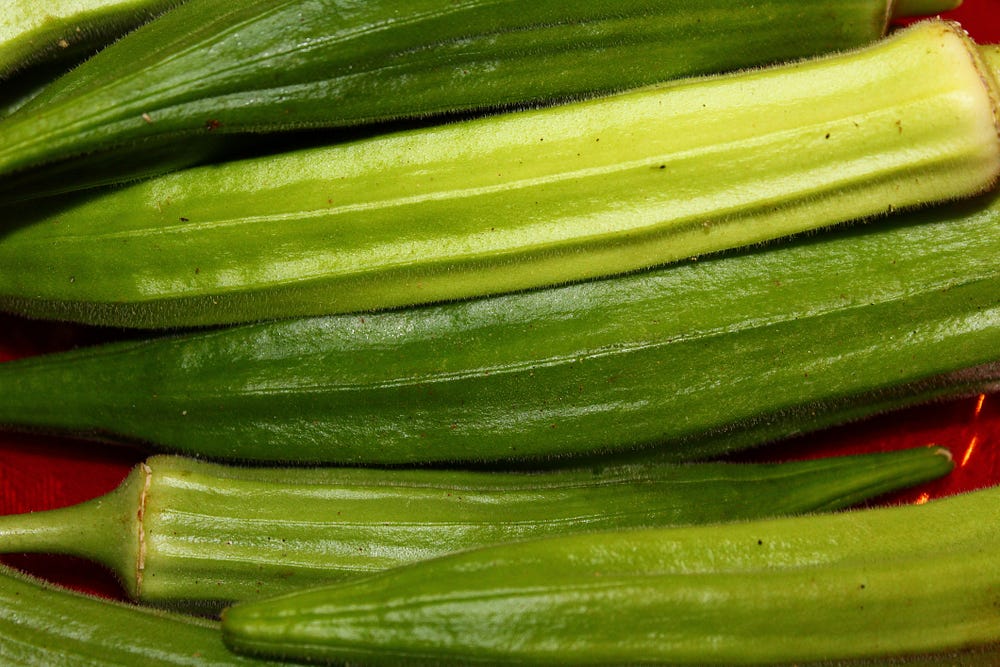Member-only story
Okra, the Vegetable of Survival
The vegetable of my ancestors brings healing during the global pandemic

Okra is the food of my ancestors, who were pulled from their homes in Africa. It was grown by those enslaved along the Carolinas, and devoured by them in Louisiana. Okra is a constant in my familial story — one that includes deep memories and gaping holes of history.
It was inevitable that okra became my staple vegetable in my New York kitchen. I realized its importance when my Louisianan mother would get fresh okra from a nearby farm in Missouri City, Texas. I’d put on my denim OshKosh B’gosh overalls and hop in our two-door truck to help her get cases of the vegetable. Once we brought them to our Houston home, she’d do the magic that only Black women could do: okra mix (commonly called okra stew) was our family’s favorite. Occasionally, fried okra would pop up on the dinner table. Stewed okra with tomatoes was a constant, too, especially on busier evenings.
Okra mix is especially versatile; it’s suitable as a Sunday dinner or a celebratory meal. It was often the meal of choice to welcome my older siblings home from college and to signify love and comfort to a family member in town. It was also there for the hard times: I’d often find my mom in the kitchen cutting tops off of okra with the news playing on the TV in the…

